Yesterday I began this series of posts. The first post was mainly targeted at my religious audience that may have concerns/misgivings about the simulation hypothesis in relation to their own religious beliefs. Though it has things in it that other people may find interesting as well. It also contains the outline for how I intend for this series to progress.
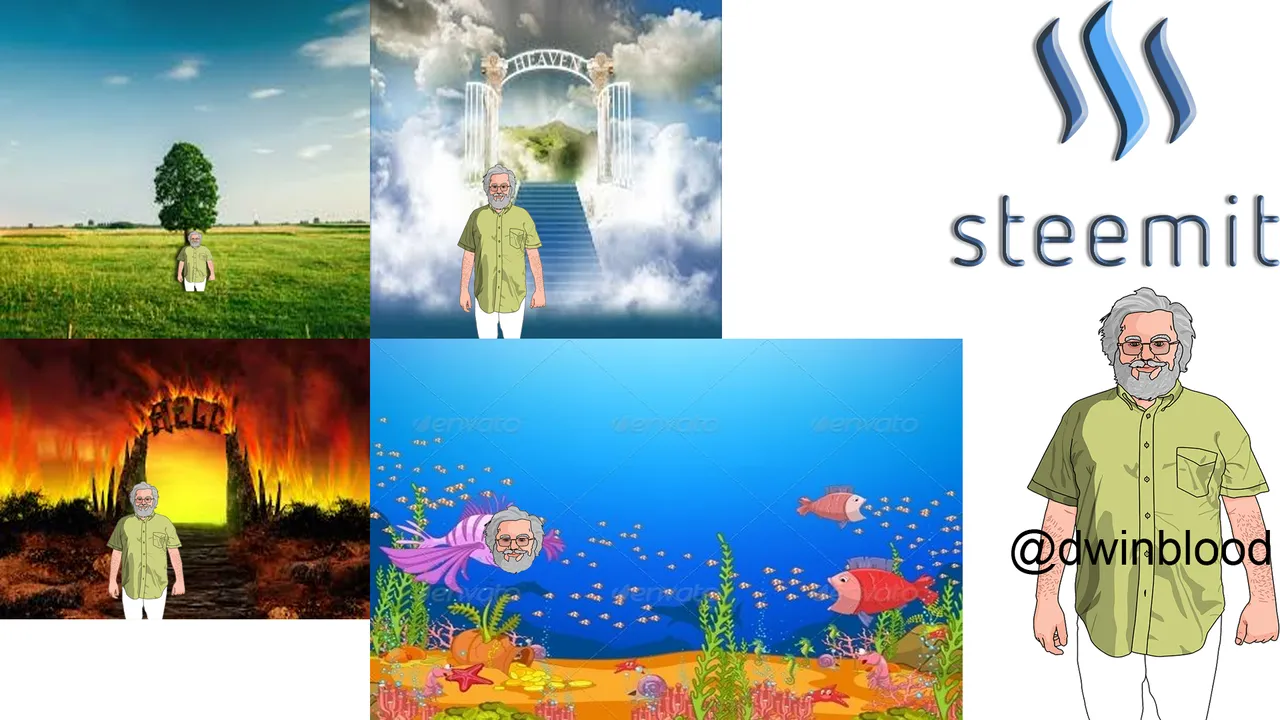
(Source: One of my simulation hypothesis posts from 2017)

(Source: giphy.com)
I have already received some interesting questions and challenges. Hopefully the post for today will address some of those. I know it will not address all of them because some of those questions will be more likely to be covered as I progress to other areas in the coming posts in the next few days.
With that said... Thank you for reading, replying, and thinking. I will continue.
Deism the Simulation Hypothesis from the past...
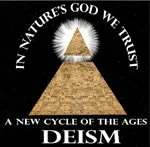
Deism is an interesting religion though it is not at all organized or formal. It has been around for quite some time and a number of famous people have identified as Deists. You may be surprised to find out who some of them are. Why isn't deism more well known then? It has no priests. Reality and what you observe around you are its temple. It has no holy texts. The text of the creator as far as deists are concerned are written into reality itself. This doesn't offer much of an opportunity to gather for church at regular intervals. It doesn't offer much to people who want to be the authority on the religion and tell you how you must act, what you must believe, etc. The beliefs of the Deist are actually quite simple. "There is a creator, now observe and use reason." That's it. Nothing else. Though along with using reason most Deists actively consume the religious texts of other religions. They value the history, and they value the moral teachings such as the golden rule. They can read the Sermon on the Mount and see the wisdom and common sense within. They simply do not see other humans as having the authority to tell them what they should believe. With no avenue to grant power over people is it any surprise that it isn't talked about and advertised as much as most religions? That likely isn't the only reason but it is one I have thought of myself as being a possible explanation.
How did I come to consider myself a Deist? (Long back story - feel free to skip if you want)
I was raised by Hippies that were also Christians. The hippy side would bring in quite a bit of the "new age" type thinking which an traditional Christian would consider evil and wrong. I didn't know this as a child as I was surrounded by "Peace, Love, and Flower Power". Yes, my parents were that type of hippy. My mother talked to me about God frequently and had me say my prayers each night when I went to sleep. The famous/infamous "Now I lay me down to sleep" prayer. I had absolutely amazing large painting of an angel over my bed.
I had a voracious curiosity for weird and fringe things from an early age. I loved ghost stories. I loved stories about UFOs. I loved stories about bigfoot. It didn't particularly bother me when people would say "That's so stupid" about one of these topics while they were likely chuckling. I didn't notice most of that when I was younger though I do recall it occurring.
My first negative memory of religion was when I was sent to a religious school briefly in Ft. Worth, Texas when I was 4 or 5. I had to ride a school bus and that was my first experience with that and it was scary because I wasn't sure I'd remember which bus I was supposed to get back on to go home. I remember listening at the school and they were talking so much about "Lucifer" that I was actually a little frightened by the religion itself. At this school I don't recall them referring to Satan or one of the many other names. I just remember they seemed to spend far more time talking about Lucifer than anything else.
I told my mother when I got home. She immediately pulled me out of that school. Other than a few occasions where I gathered with people in a small town at church on a weekend or something I never went to a religious school again. I know not all schools are like that (the majority are not) yet that is my first negative reaction in my memory with religion.
Around that age Jesus Christ Superstar was my favorite song. I also liked Alvin and the Chipmunks' "Witch Doctor", Elvis Presley's "Hound Dog", and Glen Campbell's "Rhinestone Cowboy". This was at a time I was surrounded by Beatles music and many others. My family was/is very music oriented.
I didn't really run into the truly negative things with religion until I was in high school. I made the decision right before my Freshman year that I wanted to let my hair grow long. I had mostly short hair until then. This ended up being a negative choice in the minds of some aspects of society. This would often be in the form of priests, but mostly it was local ranchers and cowboys around the same age that would talk crap until they saw I wasn't afraid of them. Eventually years later we were friends.
I had a double bad thing though. I fell in love with Heavy Metal music. Metal!!! It permeated my mind, and it gave me a very important outlet. You see while my parents I have painted a rosy picture of up to this point were/are indeed good people. They became severe alcoholics. So bad that if my parents decided to get a divorce unlike most children I'd simply say "Good, but stick to it this time.". Eventually my father quit cold turkey (locked himself in a trailer and shook for 5 days) and it was easy for my mother then. She had tried numerous times but couldn't stick to it if my father would not. Their life instantly improved. I was half way through my junior year of high school when this finally occurred. Between my Freshman year and that moment were the worst of it.
I was very against suicide. Yet I was absolutely unafraid of other people attempting to put me out of my misery. The cowboys that would come up to me in a group lucky for me always backed down. I later suspected it was because they saw I was absolutely not afraid of them, their numbers, etc. That was probably a little spooky. "Is this guy crazy?" Perhaps in some ways I was.
Anyway I was angry, and had a lot to be angry about. Heavy metal sucked that anger out of me and put it some place that wouldn't hurt other people. It did not inspire me to attack. It did not inspire me to destroy. It just made me feel like a buzzing exhilarating battery and when I let it course through me for awhile I wasn't as angry anymore. It also constantly had me upping my vocabulary as metal lyrics often used some words you don't normally hear such as obsequious.
People assumed I did drugs. Because of my parents I was very anti-drug, and anti-alcohol despite being a long haired metal head. I dealt with stereotypes of being a druggy many times.
Though during that time is when Geraldo Rivera put out his documentary and warning about Satanism (DEVIL WORSHIP: Exposing Satan's Underground(Part 1 | Part 2)). It told parents what to look for. My mother became concerned. I mean I dressed like they told her she should watch out for. I was sitting right next to her watching the show when he was telling her this. I listened to a lot of the music they warned her about and likely even said "Good band" to some of the bands they mentioned. I do recall I thought some of the bands they mentioned were crap. chuckle
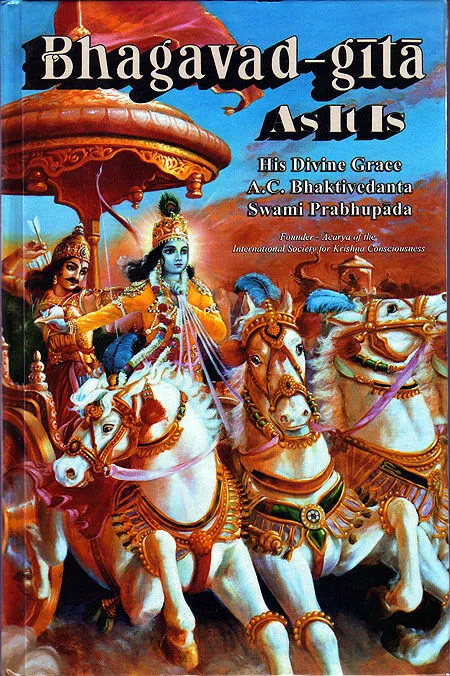
I became extremely interested in religion. ALL of them. I didn't want to practice any of them but I read every type of bible I could get my hands on. I even gladly took the Bhagavad-Gita As It Is from some Hari Krishna types when they offered one to me and told them thanks. I also learned a lot about Satanism.
I had a close friend who would tell people he was Satanic.
I formed the opinion that "Satanism" was kind of stupid. It did offer a power over other people. Mainly through fear, and intimidation. It also gave my friend that bad boy vibe that the opposite sex is often attracted to like a moth to a flame. Yet I realized that if I believed in Satan then I had to also believe in Christianity. You believe in Christianity but you decide to side with the dark side.
While the stereotype of metal is that this is what it is all about, that is actually not that common. There were a few bands (mediocre in my opinion) that did embrace that image but most did not. The bands like Iron Maiden would get labeled as Satanic because they dared to make a song called the "Number of The Beast" which opens with a direct quote from Revelations. Furthermore the song is about someone fighting "Satan" not being favorable to him. It was more like some old Fangoria style horror movie in song form. This is actually what most metal songs around the subject are. People hear the word "Satan" and they think the song must be Satanic.
I found myself wondering why when people hear a priest say "Satan" they don't immediately assume the priest is Satanic.
At this period I became more atheist with a heavy personal spiritualism. I had no label for it. I just was. Yet I was a voracious consumer of religious texts and history.
I wrote essays on it. Mainly because I've always been one to attack absolutes, and peer pressure didn't do much to me. I was clearly walking my own path. (Thus why an adult gave me Fountainhead to read... saying "I think you'll like this.")
I remember walking down a sidewalk and passing a Catholic priest and he literally elevated his nose up in the air a bit and turned his head away from me as he passed. I looked the part of a metal head. That's because I am a metal head (though I love and perform many types of music). I had to be an agent of Satan right?
Then one day someone showed me a newspaper clipping from a nearby ski resort town. It was talking about Satanism and the reason it was shown to me is because the person they described as Satanic was "ME" because I was the only person any of us knew for hundreds of miles that dressed the way they described. I had that big Slayer back patch with a broken pentagram made of swords and the goat headed devil standing over it and the words SLAYER. It was on the back of my tattered blue jean jacket. The other jacket I wore when it was colder was black fake leather festooned with Metallica patches. So did I invite the comparison? Sure. Yet it kind of blew me away that no one actually interviewed me. They didn't ask me if I was Satanic. I was far from that. I held the concept of Satanism in contempt. Yet I made it into the papers. They didn't know my name of course because they never spoke to me. (Side note... Singer/Bass Player for Slayer Tom Araya has been a devout Catholic the ENTIRE time... they just are big fans of horror movies, and books so that is the type of songs they write. Why don't we call Stephen King satanic?)
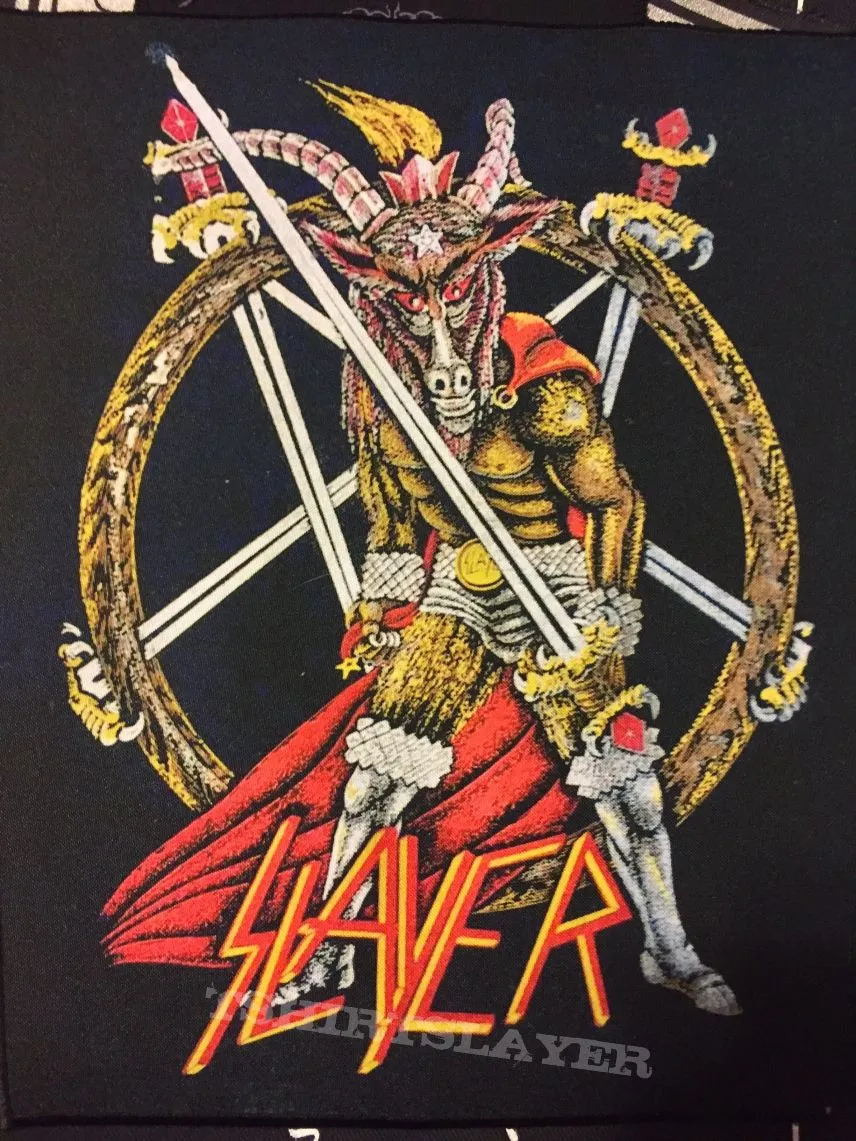
More fuel for my growing hatred of religion... I study things I don't like too. I want to know about them.
I'd see the good in religion. I'd see the good acts and helping people. Yet I began to see the fake too. The people that attended church each Sunday like that made it all good and the rest of the week they were some of the most corrupt self centered people I knew. I worked for some of them at restaurants they owned. They could be nice, and they definitely could put on a good face. I don't actually think they were horrible people. Yet the hypocrisy of how they treated religion bothered me.
I continued to study religion but I moved on. Eventually I became a parent. I was adamant about answering any questions my children have about religion. I'd tell them about all kinds of religions. If they wanted to choose one I would not consider them broken/wrong. It would be their choice. I was fine with whatever choices they wanted to pursue as long as it is their choice and is informed.
One of my daughters got into Christianity and going to regular sessions with other children. Until she came out as gay. Then that group wanted nothing to do with her. That hurt her quite a bit.
Another of my daughters actually spent quite a lot of time with Buddhism and would actually regularly go to a big temple in the Denver area. She pretty much does her own thing now.
The rest of my children haven't cared much one way or the other about religion. They don't call themselves atheists, agnostics, or even deists like me. They simply don't give it much thought at all.
Finally getting to Deism
I knew about religions. I knew about tons of religions. None of them fit for me. It turns out back then I was as resistant and reactionary to people trying to push dogmas on me as I am today. I just didn't realize that was it. I had this idea of a religion that just accepted people, and allowed people to think what they want while having the community, support, and helping of other people. A religion where morality was important, but what you chose to believe to get you to practice morality wasn't as important.
I discovered the website religioustolerance.org sometime back then. It strived to be a place to collect information about all religions, allow people to share different versions of bibles/religious texts, post essays, and have discussions. It didn't say negative things that I saw about ANY religion (including Satanism). It became a gateway to finding out about religions that I had not encountered.
After awhile I discovered UU (Unitarian Universalist) and they kind of claim to be doing what I just described above as a religion I'd find appealing. I never attended a church. They are still organized and formal they just welcome any one and any faith.
Then down a little crany I discovered Deism and it went click... it fit. It answered every need I had been seeking. Though I still considered Atheism a possibility. Some people may say I was agnostic. Not really. I considered there being two absolutes that only one could be true but I didn't know which one it was.
It boiled down to two simple propositions:
There was nothing, and then there was something. - This requires a creator, a catalyst, a God, the label does not matter.
It has always existed and was not created. - This fits with the no creator aspect of Atheism.
I could not prove or answer either of those questions and I am not a person that blindly trusts other humans telling me what I should believe and to simply have faith.
So I began jokingly calling myself an Atheist/Deist being well aware of the contradiction. Yet in reality the contradiction was only one. Is there a creator? The rest was the same rule for me "Observe and Use Reason". So ultimately it didn't matter whether there was or was not. My actions remained the same. It offered me freedom as I no longer had to doubt whether by not believing what another human is telling me I might be damning myself. I chose not to be manipulated by fear. I chose to Observe, and use reason and let my actions speak towards the type of person I am.
That eventually would change... It happened on Steemit.com which HIVE and PEAKD are forked from.
I began one of my stream of consciousness posts like this one. I asked the question "If reality were only a simulation how would WE the simulants be able to know for sure?
By the time I was done with that. I had convinced myself sufficiently that I dropped the Atheist. I simply consider myself a Deist at this point. I am in good Company.

Other Deists in history...
The two that come to mind the most for me are often considered Christian Founding Fathers. They were not Christians. They were Deists. They were quite out spoken about it.
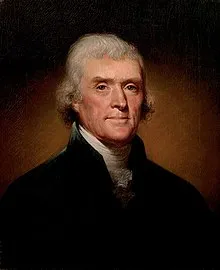
Thomas Jefferson
- Yes the principal author of the Declaration of Independence, and the third president of the United States. People may say "But there is a Jeffersonian Bible!". Yes there is. He removed all revelations, prophecies, etc. from it and just left it with what he considered historical and morally relevant. He did the same for Islam.
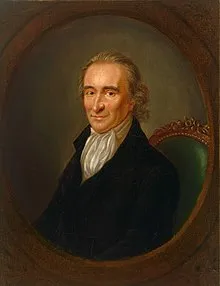
Thomas Paine
- The author of "Common Sense" and one of the people they claim had he not written as he did there would have been no American Revolution. He spent some time in a French prison for supporting their push for Revolution. He was released at the urging of president James Monroe who later regretted it when Paine published "Age of Reason" which advocated for Deism.
With that said... now I have taken FAR TOO LONG to get to what this post was to be about.
For Deism all you need to know is "There is a creator, now Observe and Use Reason." That's it. Nothing more. Let's see how that fares with The Simulation Hypothesis.
The Simulation Hypothesis and Deism
The Simulation Hypothesis proposes that all that we see around us could be running inside of some form of complex simulation. It does not define what that simulation is. That would be speculation and as far as I know unprovable. It does not claim that because it is a simulation that X must be true. Again that would be speculation and is likely unprovable.
One thing a simulation requires is a creator.
With that said. Okay so there is a creator. We don't know what it is. We know it must exist for the simulation to exist. What now?
What remains?
Observe and use reason.
What is Deism?
There is a creator, now observe and use reason.
To me the simulation hypothesis is just a new incarnation of the consideration of Deism.
What is the bible of the Deist?
Reality itself. What can be observed.
We notice things like the Golden Ratio, Fractals, and other patterns that seem like they are indications of intelligent/purposeful design.
What does the person pursuing the Simulation Hypothesis see?
The same thing the Deists see.
You might say "but the Simulation Hypothesis uses science, and math". So do the Deists. Observe and Use Reason doesn't mean you have a creator now ignore reality, ignore math, ignore seeking answers, ignore asking questions. It is the opposite.
Deists embrace science, math, and any other REASONABLE thing that helps them understand their observations.
A true scientist (someone who follows the scientific method) who simply stated they believe there is a creator and then they don't go out of their way to tell you who or what that creator is might as well be called a Deist.
That is short and sweet and explains the connection between Deism and the Simulation Hypothesis at least in the form it exists in my mind. With that said I know the previous post has already stirred up some religious related questions/challenges. I want to address some of those before I close out this post.
Religious Challenges
A friend here asked some good questions. I am glad he did because they are the type of questions I've encountered in the past but would not have recalled sufficiently to act upon them. I am going to quote the things this friend asked, or stated and run with each in some form of response. Wish me luck...
I think you are right in pointing out that people, wo approach this simulation idea could be offended by it. True. I am not certain if I feel truly offended or if it is just a reaction of disbelief.
I appreciate the honesty and I am glad someone stepped up to the plate. I am doubly appreciative that it is someone I respect and that has been proven to be a deep thinker.
Would I find this idea worth to accept as real? Would it do anything good for me and my personal existence?
It isn't telling you to do anything. It is not telling you what you should believe. It is only offering a possible explanation for the areas that religions currently say "It just is" or "have faith". If the simulation hypothesis is real then it changes none of that other than providing an avenue for imagining how something might be achievable rather than just saying "it just is". So as an intellectual it may have value to you. Should it change your life in any way? No. That is also one of the reasons I was saying the Simulation Hypothesis is no threat to religions because it can be used to justify or explain ANY of them.
It does have value in that it can convince those that think with reason and don't want to just trust faith that there might be something to it after all. Why? Because, whether it occurred or not we do understand how it could be possible to BE a simulation. When we extrapolate what we ourselves have achieved in simulations in a very short amount of time and imagine this trend continuing into the future then something like our reality being a simulation doesn't seem out of the realm of possibility.
In which way does "simulation" differ from "creation" and thus from a religious belief-system? For me, it sounds like a replacement of those and other terms and definitions like a "higher intelligence"...
Simulation is creation. Someone has to create the simulation. What form that simulation takes is not dictated by the simulation hypothesis. This is another reason I say it is no threat to religions.
It makes even the most "magical thinking" of creation stories potentially possible. I can imagine creating a simulation for any known creation story I am aware of. The simulation hypothesis does not disprove or attack religion in any way that I see. It does offer a possible avenue for those that don't like being told "it just is" to consider a possibility that might make sense to them.
is it not similar to what is assumed about omnipotence?
This one is particularly interesting. It doesn't imply anything to do with omnipotence. It simply implies creation. It doesn't define the nature of that creator or what their abilities are.
Consider our own simulations, why we create them, what they show us, how we interact with them, and then extrapolate from there:
Some of our simulations play over exactly every time we watch them. We cobble them together in the form of movies, etc. We can play them back an a person can know everything encompassed in them. That means in terms of that video, show, etc. you are kind of omniscient at the end and perhaps the creator was omnipotent as they controlled 100%. You know, and saw everything that happened in that simulation/creation.
Yet it doesn't have to be that way for there to be a creator.
Usually we create simulations either to learn things through experiments, for entertainment, and often a combination of both.
If you take John Conway's Game of Life and it's simple set of rules. John knew the rules. He'd put some cells down that would follow his rules and he would watch what happened. He was not omniscient that he knew what would happen. What would happen was part of the curiosity. He was also not omnipotent that he could easily reach out and control any aspect. Once it was launched he could add more cells but that was the limit of his interaction. He also could likely remove cells depending upon what level of interaction he made with the simulation.
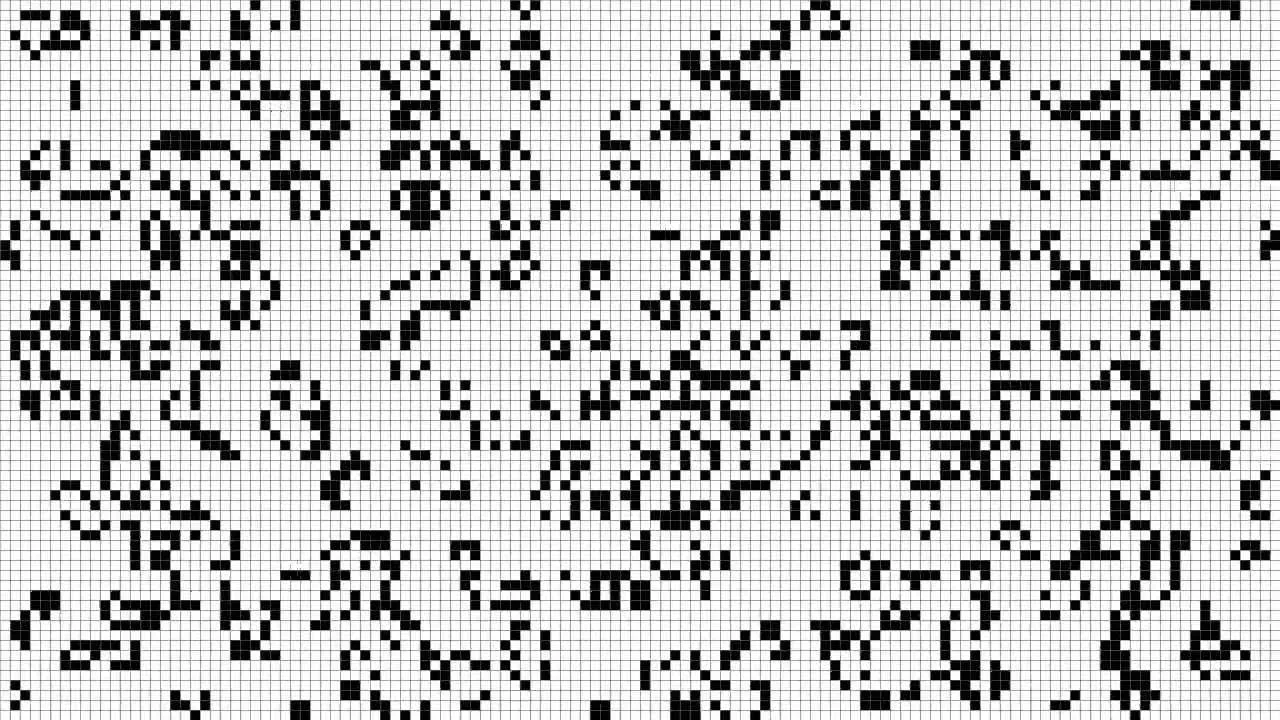
Now imagine the following... video games. We are creating more and more complex false/imaginary realities. Also known as simulations. The developers created the games. Yet they provided an avenue of for one or more player to interact with that world and cause things to happen. Neither the developers or the player are omnipotent. They don't know what the players will do before they do it. If is a game/simulation with multiple players each of the players are not omnipotent or omniscient. They don't know what the other players are doing.
If you played a game where you were omnipotent or omniscient how enjoyable do you think that game would be?
Now that isn't saying the creator in the simulation hypothesis might not be omnipotent or omniscient. While we ourselves consider our reality complex to the creator we may be nothing more than cells plopped down in John Conway's game. We cannot fathom the mind of the creator. (or can we - another day.)
Or is it, that you may mean it in the sense, that we, the organic living beings, create this simulated reality by letting it become a "mega-trend" (belief-system) and so it has the potential to become real, whether it's real or not?
Nah. It doesn't have anything to do us other than the fact if it is true then we are in it. We are either the simulants, the players, or perhaps both.
What about animals (or plants)? Do you think, they are unconscious about their existence? If you consider they aren't, what kind of influence can they possibly have on the human realm?
That depends upon the simulation. Are they AI? Or are they Avatars? I don't tell you which because if it is a simulation it could be any of those. I am not the creator. Though I might be a player. I'll touch upon that more in the future because TIME is an important and interesting thing to think about when it comes to the Simulation Hypothesis and I will have a post specifically devoted to that.
And last but not least, how do the absolutes fit into this concept we just talked about?
The absolutes would be defined by the rules of the simulation. We discover them by Observing and using reason. To me mathematics is an example of where absolutes exist. The colors black and white represent some absolutes though which way they work out depends upon whether you are focusing on pigments or whether you are focusing on light.
If it is a simulation there certainly would be some absolutes. When I get into the post about if we are in a simulation what are some ways we might be able to tell I'll touch upon that. This will be revisiting the original post idea through which I convinced myself enough to drop the Atheist from my personal Atheist/Deist identification.
Tomorrow I'll explore that. Tomorrow I jump back into the "How would we know?"
